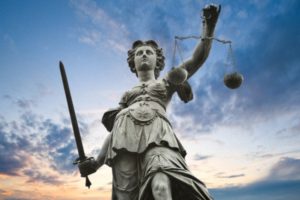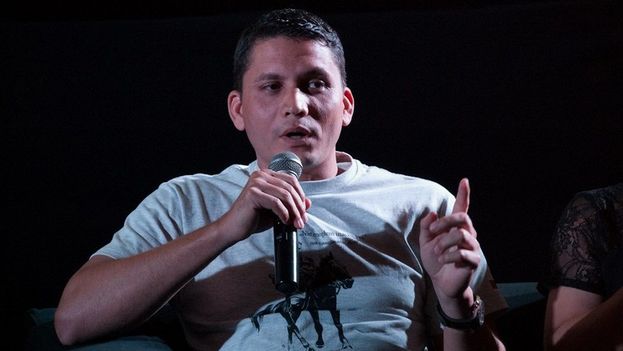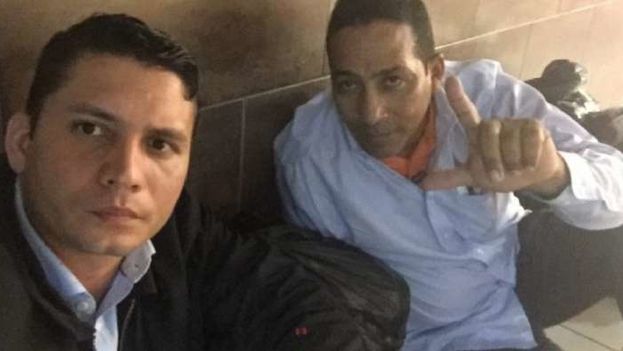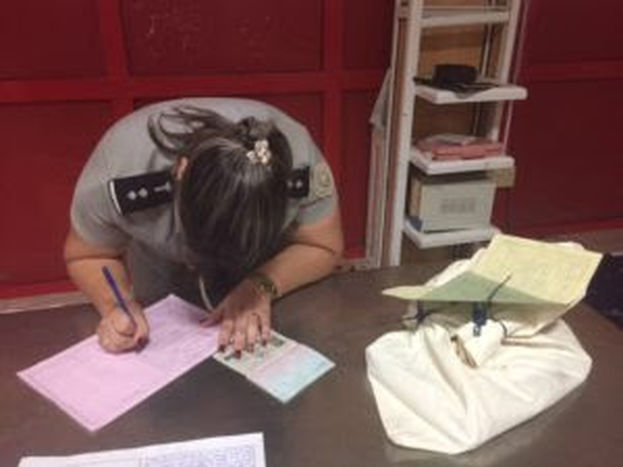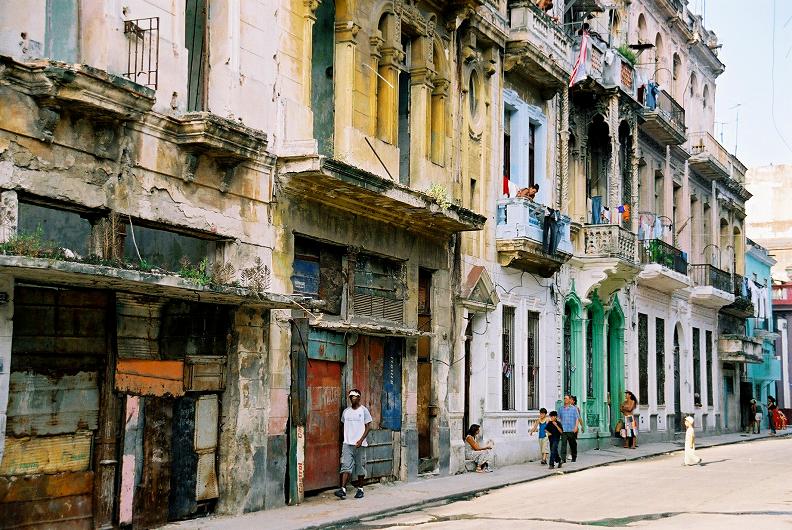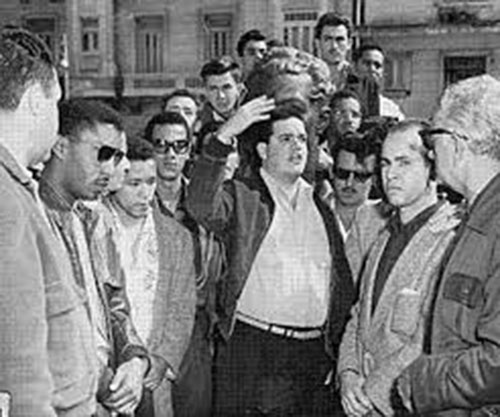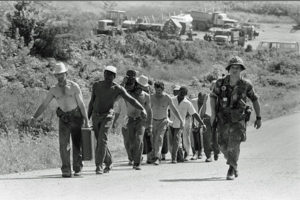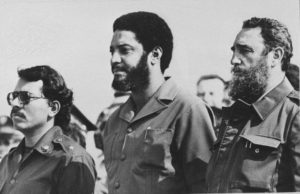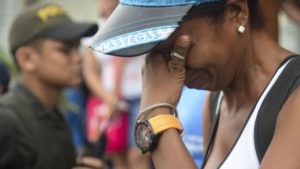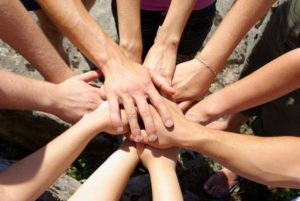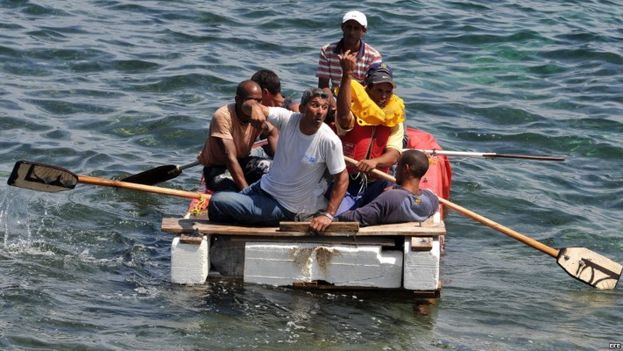Like all Cuban children, Avila shouted slogans during his school’s morning assembly, participated in countless repudiation activities “against imperialism” and dreamed of resembling Ernesto ‘Che’ Guevara. But while, in school, they taught him the social achievements that the Revolutionary process brought to the population, at home reality was stubborn and showed itself to be something quite different. continue reading
The residents of Yarey de Vázquez are poor, the kind of poverty that grabs you by the throat
The residents of Yarey de Vázquez – the Puerto Padre municipality of Puerto Padre where the leader of the Somos+ (We Are More) Movement was born – are poor, the kind of poverty that grabs you by the throat. A place lost in nothingness, where many families still use latrines for their bodily needs, and live in houses with roofs made of palm fronds.
Surrounded by pigs, chickens and tedium, Avila realized that his life did not resemble the official version he was being taught. Born in 1985, in the middle of that “golden decade” when the Soviet Union was propping up the island, he was barely walking a year later when Fidel Castro ordered the closing of the free farmers markets in the midst of the “Process of Rectification of Errors and Negative Tendencies.”
Eliécer Avila reached puberty during what was called the Special Period. With the voracity that still characterizes him, he faced many days of his adolescence with his plate half full, or almost empty. He hand stitched the shoes he wore to school, invented all kinds of “outfits” from his grandfather’s old shirts, and turned off the light when it was time to strip down to his underwear, so no one could see the holes.
Surrounded by pigs, chickens and tedium, Avila realized that his life did not resemble the official version he was taught. He was born in 1985, in the middle of that “golden decade” when the Soviet Union was propping up the Island
With a natural leadership quality, in which a certain humor mixes with an undeniable histrionic capacity to narrate anecdotes, the young man made his way through those years without climbing aboard a raft to escape the country or ending up in jail. Those who knew him predicted a future in politics, because of those “fine lips” that helped him in student meetings and in romantic conquests.
A little bit later, luck smiled on him. He was able to enroll in the University of Computer Sciences (UCI), founded in 2002 in the middle of the Battle of Ideas. UCI was located on the site that had once been the Center for Exploration and Radioelectronics Listening, known as the Lourdes SIGNIT Station, where until 2001 Russia – and the Soviet Union before it – had had its largest spy station outside its borders. UCI was a school for trusted young people to become computer soldiers for a Revolution that fears the Internet.
While a student at UCI, Avila led Operation Truth. His task was to monitor digital sites and blogs critical of the Government. In those spaces, the young revolutionary sharpened his arsenal of tools for political struggle that included everything from hacking to the execution of the reputation of anyone who opposed the Plaza of the Revolution.
Little by little, like acid that filters through the cracks, those anti-government arguments he read on the web began to sink into his mind and mingle with his own disagreements. Restless, in 2008 he took his turn at the microphone during a visit to UCI of Ricardo Alarcón, then president of the National Assembly. The minutes of that public appearance that followed marked the rest of his life.
The video of the collision between Ávila and Alarcón jumped to first place in the hit parade on the clandestine networks that distributed audiovisuals. No one wanted to miss it, especially the moment when the leader of Parliament justified the travel restrictions imposed on Cubans by saying how congested the skies might be, if everyone were allowed to board an airplane.
Avila led Operation Truth while studying computer science; his task was to monitor digital sites and blogs critical of the Government
Now, nine years later, the young activist prefers not to be called “Eliécer, the one who debated with Alarcon,” but for the rest of his life it will be his most important letter of introduction to millions of Cubans. His challenge of power, with simple questions and a firm voice, has been one of the most accurate and best documented gestures of rebellion in almost six decades of Castroism.
After that, he received his punishment. After graduating, the authorities sent him to a remote Youth Computer Club to purge his audacity. It was the decisive moment in which he decided to cross the red line towards independence. He left the state sector, founded the Somos+ Movement and relocated to Havana. One audacious act after another.
The attacks rained down from all sides. State Security raised the level of pressure on his environment, traditional opposition leaders threw darts at the upstart, and there was no shortage of those who claimed that he was only a mole for the political police disguised as a dissident.
Since then, Ávila has tried to give shape to a civic discourse that uses new technologies and a less politicized language, closer to the concerns of ordinary people. But, like every dissident, he is caught in the grip of charges of illegal action, subjected to constant vigilance and assigned the halo of demonization imposed on anyone who does not applaud power.
Nothing is more disturbing to a system that has played with social alchemy than the fact of a creature from its own ideological laboratory turning against it
The numerous trips abroad that he has made since the Travel and Immigration Reforms of 2013 have allowed him to know the world, only to discover that the most exciting and indecipherable of the territories that await him is located in the future Cuba. That country so many have dreamed of and that is taking so long to arrive.
Recently he went a step further and announced that he was prepared to represent the electors of his constituency as a delegate. A somewhat remote possibility, given the oiled mechanisms of control over the People’s Assemblies maintained by the ruling party where, by show of hands, the attendees must nominate the potential candidates.
This week, the guajiro of Yarey de Vázquez has crossed another line. A public protest at José Martí International Airport has resulted in his house being searched, and him being arrested and charged with “illicit economic activity.” The trigger was the seizure of his laptop at Customs when he returned from Colombia.
Now, it is expected that the siege around the young leader and his Somos+ Movement will continue to close. Nothing is more disturbing to a system that has played with social alchemy than a creature from its own ideological laboratory turning against it. Eliécer Ávila will be doubly punished because power acts with more fury against its own, when it rebels.
More articles in English by and about Eliécer Ávila can be read here.
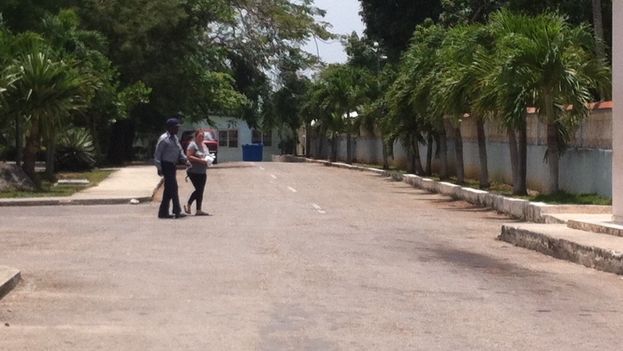
![]() 14ymedio, Havana, 2 June 2017 – The principal of Academy 1010 and Somos+ (We Are More) Movement activist, Joanna Columbie, was deported Friday from the Vivac detention center in Havana to Camaguey province, as reported to 14ymedio by the leader of the Somos+ organization, Eliecer Avila.
14ymedio, Havana, 2 June 2017 – The principal of Academy 1010 and Somos+ (We Are More) Movement activist, Joanna Columbie, was deported Friday from the Vivac detention center in Havana to Camaguey province, as reported to 14ymedio by the leader of the Somos+ organization, Eliecer Avila.



